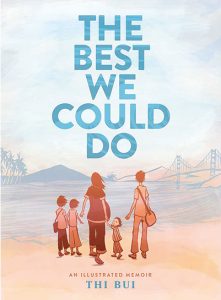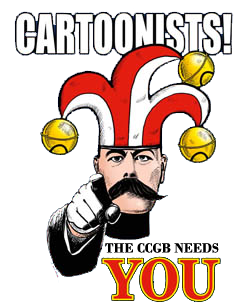By Thi Bui
Publisher: Abrams Comicsarts
ISBN: 9781419718779
I’m a little too young to remember the Vietnam war and its aftermath, but not the slew of retrospective and gung-ho movies and comics that followed it. Pretty much all of these seemed to focus on a small group or an individual who valiantly took the fight directly to the enemy in the most heroic and bloody of circumstances, and often resulting in some grim and lengthy repercussions, not least some serious discussions of PTSD. Rarely, if perhaps ever, do you come across a story told by someone from Vietnam, and see their point of view, so The Best We Could Do immediately qualifies for closer attention.
As Vietnam was busy tearing itself apart through the conflict its people, as always with war, were getting caught in the crosshairs as the two sides slugged it out. Thi Bui’s family were one such family, and this autobiographical tale follows their struggle to flee the devastation through the refugee camps and on to America. That in itself is a powerful and touching story of finding your home and country snatched from you, experiencing desperation and hunger, and the constant worry and fear that anything will ever be safe again. But there’s another story taking place here, begun before the war but directly linked to it and through it, and that’s one of family. Thi Bui was but a small girl when she escaped the terrors of war, and it was her parents who made the decisions to get their family out; a brave and desperate need, especially when Thu Bui’s mum was heavily pregnant. As the book develops the memoir focuses more and more on who her mother and father are, and who they once were, not to reveal some major B-movie plot twist that they were both assassins or ruthless spies, but to give context to their behaviour and to understand their decisions. Outside of their home country they had to start again at some disadvantage, and Thi Bui explores who they were and what they’ve become, all in light of her own pregnancy and early motherhood.
The Best We Could Do is poignant and thoughtful, where the war becomes secondary to understanding parents and their decision making at a time when you’re perhaps best placed to understand it. It is introspective, and often sad, but the underscoring theme, even if Thi Bui doesn’t always acknowledge it, is one of quiet triumph over adversity. In light of the current global refugee crisis this is a book that offers perspective and thoughtfulness in a manner that can be appreciated, but perhaps more importantly it’s a window on parenthood and family.
And if you liked that: Read Munnu by Malik Sajad


No comments yet.